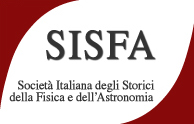Speaker
Description
Educational games have a long and rich history. Among them are numerous examples of card and board games that have been used over time to teach and popularize scientific knowledge.
This practice was particularly widespread among the middle and upper classes of European society between the late 18th and early 19th centuries. However, even earlier—in the 17th century—such games had already taken root, albeit in different forms and aimed at different audiences.
Today, these games attract the attention of scholars across various disciplines, including the history of games, the history of education, and the history of science. Theoretical insights from visual and material culture, as well as from the history of print—especially
studies on ephemera—also play a crucial role in understanding their significance.
This presentation aims to offer a (necessarily partial) reconstruction of the history of these educational games: how they circulated in the marketplace and in different social contexts, how they were used, and who their intended audiences were. The focus will be on games with themes related to astronomy and physics.
In addition, I would like to explore the potential of these historical games as educational tools in the present day. Imagine, for instance, reprinting a game like the Wallis Board Game of Natural Philosophy, originally published in London in 1805, and having a classroom of students play it, strictly following the original instructions. This kind of reenactment would allow students to engage directly with early 19th-century physics—or at least, with the kind of physics that was being taught to their peers at the time.
Following the gameplay session, students could participate in a historical and theoretical discussion of the scientific concepts that emerged, from the perspective of the history of physics. This could then lead to further reflection on teaching methods—comparing those of the past with contemporary educational approaches.

